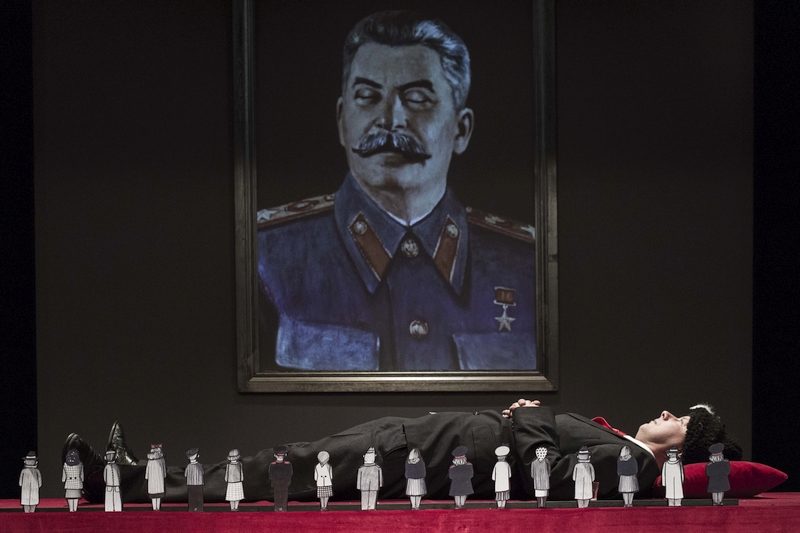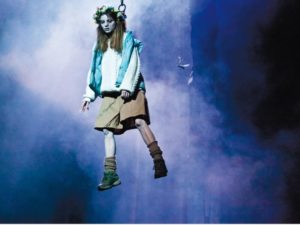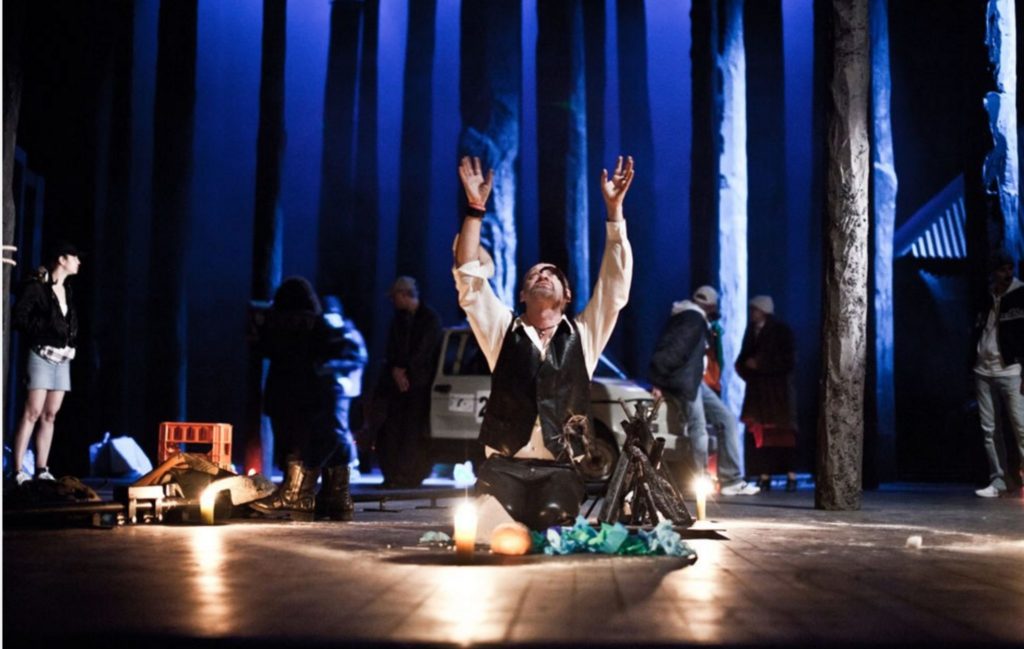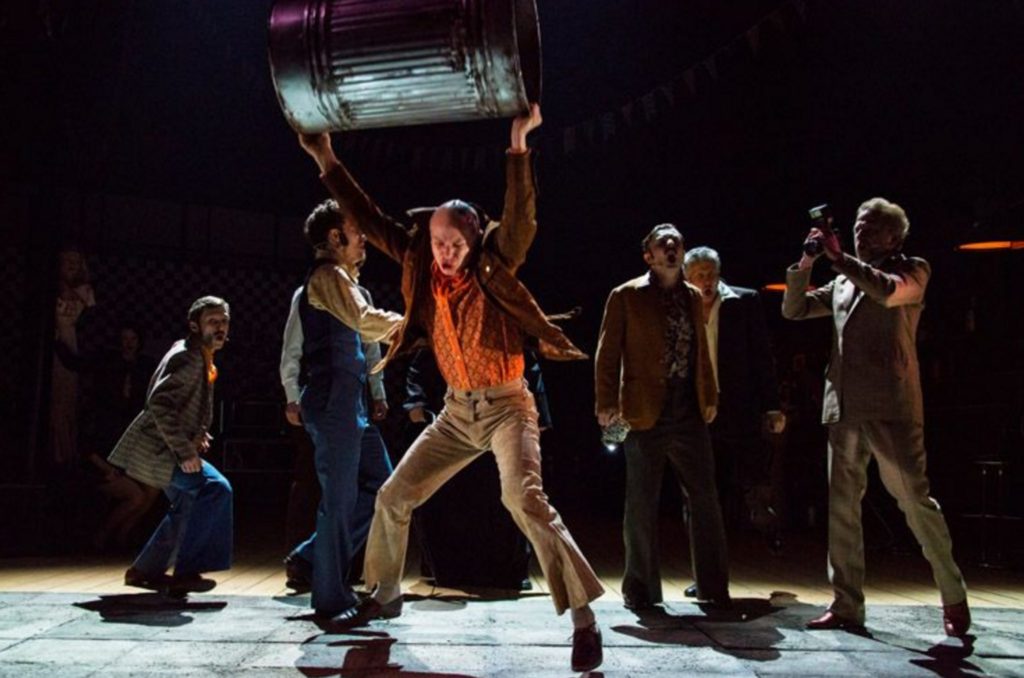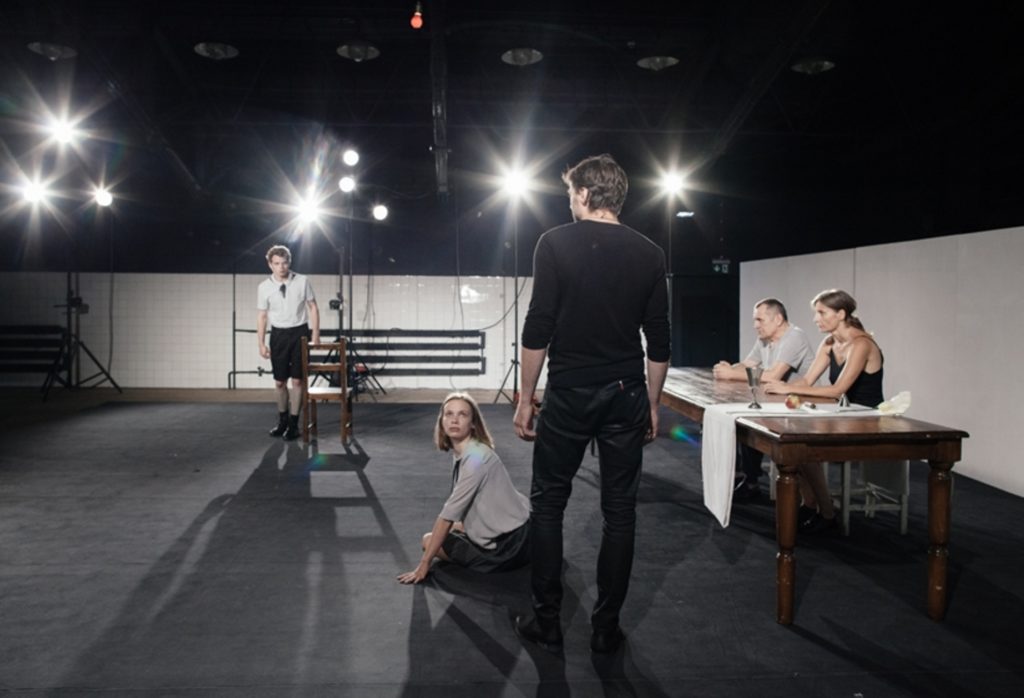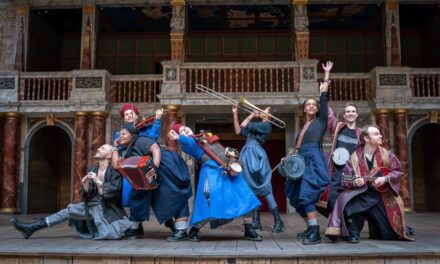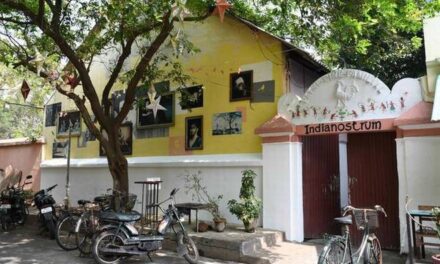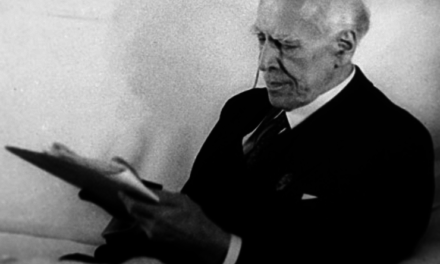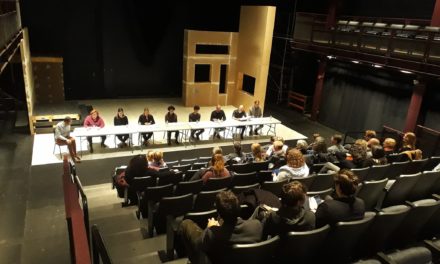The final Polish premiere of 2016 was Triumf Woli [The Triumph of the Will] prepared by the directorial and dramaturgical duet Monika Strzępka and Paweł Demirski for the Helena Modjeska’s National Old Theatre in Cracow. In their own words, Triumf Woli was created to counteract ‘what is happening around us’ (Gazeta Wyborcza, 21.12.2016). The production, inspired by Miloš Forman’s Man on the Moon and Shakespeare’s The Tempest, has a group of aeroplane crash survivors telling stories about great human beings who successfully fought the obstacles to resist their hopeless situations. Triumf Woli is also a good metaphor for the year 2016 in Polish theatre. With a very unstable political situation in Poland, this year was marked by theatre artists resisting narratives imposed by the Polish government and, at the same time, it still echoed the 2015 celebrations of the 250th anniversary of public theatre in Poland.
Part 1: National Dramas, Myths, and Histories
Dziady, once again
First of all, it was yet another year of Adam Mickiewicz’s Dziady [Forefather’s Eve], one of the most important plays in Polish theatre history. The nineteenth-century play, written by one of Polish national Bards, finally had its premiere. Although Dziady has received previously numerous theatre productions, this was the first time the audience saw a production of the full play with no cuts. Michał Zadara’s staging was produced and performed by the Polski Theatre in Wrocław. This was an enormously challenging undertaking, even if only for numerous changes of location in the play that needed scenographic support. That is why the preparation for the premiere started in 2010 and the Polski Theatre in Wrocław presented individual parts of Dziady in 2014 and 2015. The historical fourteen-hour event on the 10th of February 2016 gave and a real sense of community and importance sensed amongst the audience and the actors.
Zadara looked at Dziady by replacing usual pathos with self-irony, which for him was closer to Mickiewicz’s writing. The irony was also central in the production by the National Theatre in Warsaw that opened their Dziady in early March, this time with cuts and ‘only’ four-hour long. The Lithuanian director Eimuntas Nekrošius interrogated Polish martyrdom, the tendency to romanticize history, and, on another level, the Polish ‘ownership’ of Mickiewicz. Without getting into historical and geographical complexities, both Lithuania and Belarus, but also Tatars and Jews, have all ‘claimed’ Mickiewicz. In that context, it was great to see that the Dziady Recycling Festival recognized this diversity both on the level of the play and its author, but also in relation to cults of ancestors in different cultures. The festival, that Lauren Dubowski wrote about, featured both Zadara’s and Nekrošius’s productions.
National monuments
The idea of a national drama as a platform for interrogation rather than a celebration of the nation was also at the heart of other productions. In January, the Śląski Theatre in Katowice presented Stanisław Wyspiański’s Wesele [The Wedding] directed by Radosław Rychcik. The 1901 play, considered to be a Polish masterpiece, is set at the wedding of the city-born Groom and the village-born Bride. It deals with national conflict, memory, and the role of arts. Rychcik set his production in the 1970s Belfast. The Groom and his family became loyalists, the Bride and her family were Catholic, Jewish Rachela was ‘translated’ into an IRA soldier, and even ‘Seamus Heaney’ appeared. The bilingual production attempted to reproduce the soundscape of Hiberno-English in Polish and played with dissonances and glitches to challenge national myths and image of the nation. In Rychcik’s Wesele, the ‘perfect’ image of Polishness was stained with violence, rape, disregard, and silencing of those outside the norms of patriarchal masculinity.
Later on that year, in October, Anna Augustynowicz directed a play that is one of the most important dramas interrogating Polishness and Fatherland: Ślub [The Marriage] by Witold Gombrowicz. Gombrowicz’s Ślub, written in Argentina after World War Two, grows out of Polish Romantic traditions and is very critical of them. Augustynowicz, one of the most eminent Polish directors, took it on to battle the language and symbols of Polish national discourses. The production was a collaboration between the Współczesny Theatre in Szczecin and the Kochanowski Theatre in Opole and won the 2016 International Gombrowicz Festival. I will finish this part with a production that, like the other productions discussed here, uses the past as a mask to talk about urgent issues. However, in contrast to productions discussed already, it is a new piece of writing rather than a recognised masterpiece. It does, however, engage with the idea of a masterpiece. I am talking about Pomnik [The Monument] by the Wrocław Puppet Theatre. This puppetry performance was an adaptation of Mariusz Szczygieł’s documentary about the history of Joseph Stalin’s monument in Prague. During the building of this monument, several builders were killed and its designer committed suicide. The dramaturg Elżbieta Chowaniec and the Czech director Jiří Havelka used this story as a metaphor of an individual enslaved by authorities. They also questioned the point of erecting physical and metaphorical monuments. These issues resonated strongly with current Polish socio-political debates like the Polish government’s undemocratic activities and romanticisation of the 2010 plane crash in Smoleńsk that saw many Polish officials killed, including then-president Lech Kaczyński. Pomnik was also a showcase of virtuosity by three actors-puppeteers: Anna Makowska-Kowalczyk, Radosław Kasiukiewicz and Tomasz Maśląkowski. And it is with the focus on the actors taking central stage, not only in theatre but also on political stages, that the next part will start.This post was written by the author in their personal capacity.The opinions expressed in this article are the author’s own and do not reflect the view of The Theatre Times, their staff or collaborators.
This post was written by Kasia Lech.
The views expressed here belong to the author and do not necessarily reflect our views and opinions.

